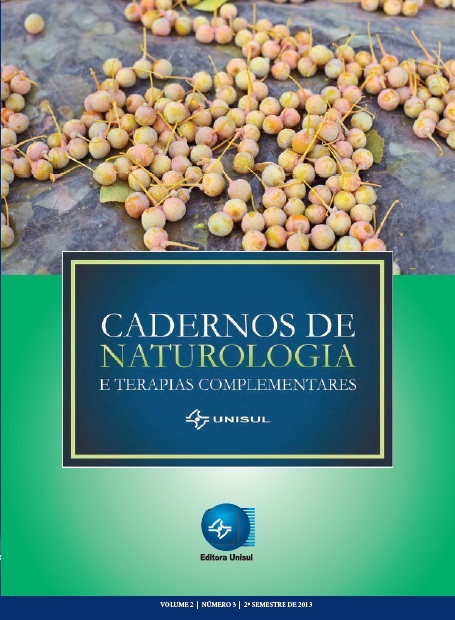Classical naturopathy: inpatient services in Brazil
DOI:
https://doi.org/10.19177/cntc.v2e3201329-37Keywords:
Naturopathy, Complementary therapies, Health resorts, Health promotion, Humanization of assistanceAbstract
Introduction: Classical naturopathy is a health care system based on vitalism that uses, simultaneously, diet therapy, hydrotherapy, phytotherapy, kinesiotherapy, and therapy of order (in German Ordnungstherapie). In Brazil, the characteristics of institutions offering naturopathy on an inpatient basis are not known. Objective: Investigate the location, foundation year, and the characteristics related to structure, care, and care outcomes of inpatient services that adopt classical naturopathy. Material and methods: Exploratory and descriptive study, with a qualitative approach, carried out with directors from 12 out of the 16 services identified. In loco interviews were conducted, applying a semi-structured form and questionnaire. Qualitative data underwent Bardin’s categorical analysis. Results: The facilities are present in all Brazilian geographic regions and the pioneer was founded in 1968. Data are divided into four categories: administrative profile, physical structure, care profile, and care outcomes. All institutions have a legal personality under private law, and most of them are charity entities. Facilities range from small to mid-size and they are integrated into nature. Care, with a humanistic profile, is provided by means of natural methods, covers the individual’s integrality and it emphasizes health education and lifestyle change. The care outcomes are promotion of well-being, improved emotional status, creation of a bond, among others. Final remarks: Distributed throughout the country, the institutions have a beneficent profile, they offer humanized and comprehensive care, employ natural treatments methods, and promote health and well-being. Further reasearches are needed.Downloads
Published
2013-12-06
Issue
Section
Original Articles


